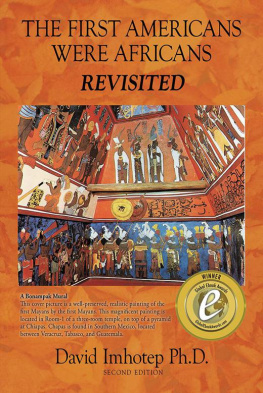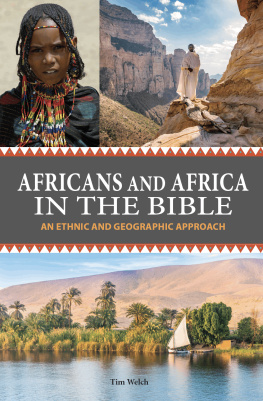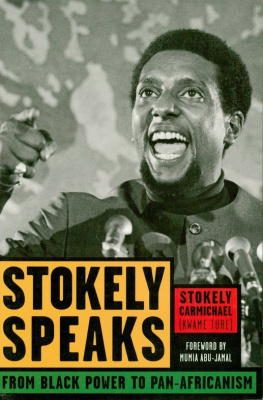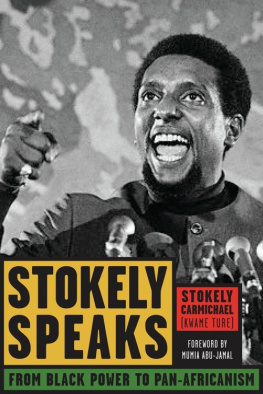
Africans Are Not Black
Africans are not literally black, yet they are called black. Why? This book explores the genesis and evolution of the description of Africans as black, the consequences of this practice, and how it contributes to the denigration (blackening) and dehumanisation of Africans. It uses this analysis to advance a case for abandoning the use of the term black to describe and categorise Africans. Mainstream discussions of the history of European racism have generally neglected the role of black and white colour symbolisms in sustaining the supposed superiority of those labelled white over those labelled black. This work redresses that neglect, by tracing the genesis of the conception of Africans as black in ancient Greece and its continued employment in early Christian writings, followed by an original, close analysis of how this use is replicated in three key representative texts: Shakespeares Othello, the translation of the Bible into the African language Ewe, and a book by the influential Ghanaian religious leader, Mensa Otabil. It concludes by directly addressing the argument that black can be turned into a positive concept, demonstrating the failure of this approach to deal with the real problems raised by imposing the term black on its human referents.
Kwesi Tsri is a teaching and research associate in the Equality Studies Centre, School of Social Policy, Social Work and Social Justice at University College Dublin, Ireland. He holds a PhD in Equality Studies, MAs in Ethics and Morality and in Translation Studies, and BAs in Anthropology and Theology and in Philosophy. His research interests are anti-African racism, equality, ethics, identity, justice, morality and language.
Interdisciplinary research series in ethnic, gender and class relations
Series Editor:
Biko Agozino, Virginia Polytechnic Institute and State University, Blacksburg, Virginia, USA
This series brings together research from a range of disciplines including criminology, cultural studies and applied social studies, focusing on experiences of ethnic, gender and class relations. In particular, the series examines the treatment of marginalized groups within the social systems for criminal justice, education, health, employment and welfare.
Titles in the series include:
Pan-Africanism: Exploring the Contradictions
William B. Ackah
Gender, Migration and Domestic Service
Jacqueline Andall
From Immigrants to Ethnic Minority
Lorna Chessum
A Critical Analysis of the Contributions of Notable Black Economists
Kojo A. Quartey
Pan-African Issues in Crime and Justice
Edited by Anita Kalunta-Crumpton and Biko Agozino
Africa Beyond the Post-Colonial
Edited by Ola Uduku and Alfred B. Zack-Williams
Democratic Policing in Transitional and Developing Countries
Edited by Nathan Pino and Michael D. Wiatrowski
W.E.B. Du Bois on Crime and Justice
Shaun L. Gabbidon
Policing and Crime Control in Post-Apartheid South Africa
Anne-Marie Singh
Reconstructing Law and Justice in a Postcolony
Nonso Okafo
Apartheid Vertigo
David M. Matsinhe
Criminal Resistance?
Temitope B. Oriola
Resistance and Empowerment in Black Womens Hair Styling
Elizabeth Johnson
Africans Are Not Black
The case for conceptual liberation
Kwesi Tsri
First published 2016
by Routledge
2 Park Square, Milton Park, Abingdon, Oxon OX14 4RN
and by Routledge
711 Third Avenue, New York, NY 10017
Routledge is an imprint of the Taylor & Francis Group, an informa business
2016 Kwesi Tsri
The right of Kwesi Tsri to be identified as author of this work has been asserted by him/her in accordance with sections 77 and 78 of the Copyright, Designs and Patents Act 1988.
All rights reserved. No part of this book may be reprinted or reproduced or utilised in any form or by any electronic, mechanical, or other means, now known or hereafter invented, including photocopying and recording, or in any information storage or retrieval system, without permission in writing from the publishers.
Trademark notice: Product or corporate names may be trademarks or registered trademarks, and are used only for identification and explanation without intent to infringe.
British Library Cataloguing in Publication Data
A catalogue record for this book is available from the British Library
Library of Congress Cataloging in Publication Data
A catalog record for this book has been requested
ISBN: 978-1-4724-5750-9 (hbk)
ISBN: 978-1-315-56608-5 (ebk)
Typeset in Times New Roman
by Swales & Willis Ltd, Exeter, Devon, UK
This book would not have been possible without the guidance and help of several individuals, who in diverse ways contributed and extended their valuable assistance in its preparation and completion.
My heartfelt gratitude goes to John Baker, my PhD supervisor and mentor. I also want to express my appreciation to my colleagues in the Equality Studies Centre, School of Social Policy, Social Work and Social Justice at University College Dublin, particularly Kathleen Lynch, Maureen Lyons, Elizabeth Hassell, Marie Moran and Judy Walsh, and to my fellow PhD students for their immense support. Similarly, I thank Gina Philogne, Sara Cantillon, Marie Carroll and Katherine ODonnell for their help. Equally, my appreciation goes to the staff of the School of Applied Language and Intercultural Studies (SALIS) at Dublin City University, especially Dorothy Kenny, Michael Cronin, Ruth Bracken, Minako OHagan, Jenny Williams and Sharon OBrien for their contributions in the course of my academic journey. I am also indebted to Jane Read, who copyedited this book. To my wife, Thrse, and the Just family, I give thanks without measure. My profound gratitude goes to my family in Ghana, who supported me every step of the way. Finally, to all my friends in Ireland, Ghana and elsewhere, who supported me in different ways, I say thank you!
This book explores the genesis and evolution of the description of Africans as black, the consequences of this practice, and how it contributes to the denigration (literally, the blackening) and dehumanisation of Africans. It uses this analysis to advance a case for abandoning the use of the term black to describe and categorise Africans. Mainstream discussions on the history of European racism have considered the role of black and white colour symbolisms in sustaining the supposed superiority of those labelled white over those labelled black, but they have generally neglected the question of whether anyone should be described and categorised as black in the first place. This book redresses that neglect by a careful review of the uses of black and cognate terms in ancient and early Christian writings, followed by a close analysis of how these uses are replicated in modern English and African texts. It concludes by directly addressing the argument that black can be turned into a positive concept and retained as a legitimate identity descriptor.
For some time now, the symbolic use of the term black, and the role this use might have played in the emergence and sustenance of anti-African racism, have been put under scrutiny by classical historians and anti-racist theorists. Since racism originated in Europe, these writers have focused on classical antiquity. Although they agree that the ancient Greeks were the first to conceptualise African peoples in colour terms through the use of the concept Ethiopian (burnt-faced) and the term black, they take it for granted that Africans are black. By contrast, this book draws attention to how the symbolic use of the term black interacts with its descriptive and categorical use to sustain racism, and challenges the commonsense assumption that there is no alternative to describing human beings as black. The book argues therefore that we should abandon the use of the term black as a description and category for Africans.









